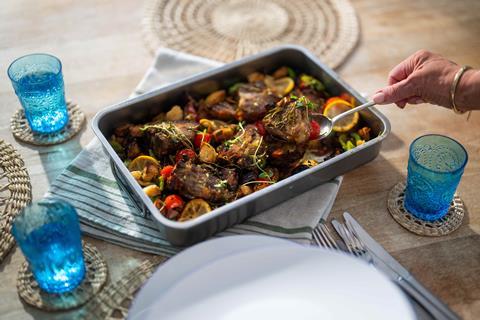Research conducted by Censuswide on behalf of Quality Meat Scotland (QMS) has revealed that 90% of Scottish red meat consumers would prefer to buy meat sourced from Scotland, even if red meat imports were 30% cheaper.

The survey also found that 73% of respondents prefer to purchase red meat produced in Scotland when faced with a choice in the supermarket or butcher. The top reasons for this preference include a desire to support Scottish farmers (74%) and local economy (72%), and superior quality (54%), freshness (52%) and traceability (54%).
QMS highlighted that at a time when food security, rural jobs, and sustainability of agriculture are under increasing pressure, these strong results confirm that Scottish shoppers remain loyal to buying locally produced red meat.
Despite the preference for domestic beef, pork and lamb, the National Farmers’ Union Scotland’s (NFUS) ShelfWatch report for 2024 showed a 6% increase in imported red meat on supermarket shelves, sparking fears within the industry about the long-term viability of domestic sourcing. More than 80% of respondents expressed concern over the UK becoming more dependent on imported red meat.
Sarah Millar, QMS chief executive, said: “Our independently conducted research clearly shows that people in Scotland want to eat local red meat even if alternatives from outside of the UK are cheaper. This firm commitment includes but goes beyond the high quality, freshness and traceability of our world-renowned produce; with the top reason for this choice being to support our hard-working farmers and the wider Scottish economy.
“It is heartening to see this societal support and recognition of the wider value our agriculture sector brings across Scotland, including to some of our most remote and rural communities.”
QMS calls for action within the red meat processing sector
These new findings follow economic modelling from QMS, which highlighted a “significant opportunity” for Scotland’s beef sector to grow and help meet the UK’s future food needs. QMS found that by 2030, due to falling local production, the UK will require an additional 278,000 tonnes of beef per year to meet projected domestic demand.
To avoid increased reliance on imports, the current downwards trend in local production needs to be reversed, said QMS. For Scotland, this would mean producing an additional 22,000 tonnes of beef annually, which would require an estimated 79,000 more breeding cows in the national herd by the end of the decade than currently projected. This level of growth has the potential to add £281 million in annual output and contribute £76 million in Gross Value Added (GVA) to the Scottish economy each year.
Without “decisive investment and action”, beef imports are forecast to increase by 124,000 tonnes by 2030, further shrinking the market share for home-grown meat. Currently, Scotland’s red meat processing sector is “underutilised”, said QMS, operating at just 69-73% of its capacity.
Millar continued: “We have a unique opportunity to grow Scotland’s beef herd by nearly 80,000 cattle and QMS, alongside industry partners across the Scottish red meat supply chain, will be focusing on building confidence and inspiring investment and action amongst farmers to meet our domestic demand.
“This isn’t just about economics; it’s about resilience, traceability, quality, and food security. We have the infrastructure and the ambition – but we need a shared commitment from industry, Government and consumers to make it happen.”















